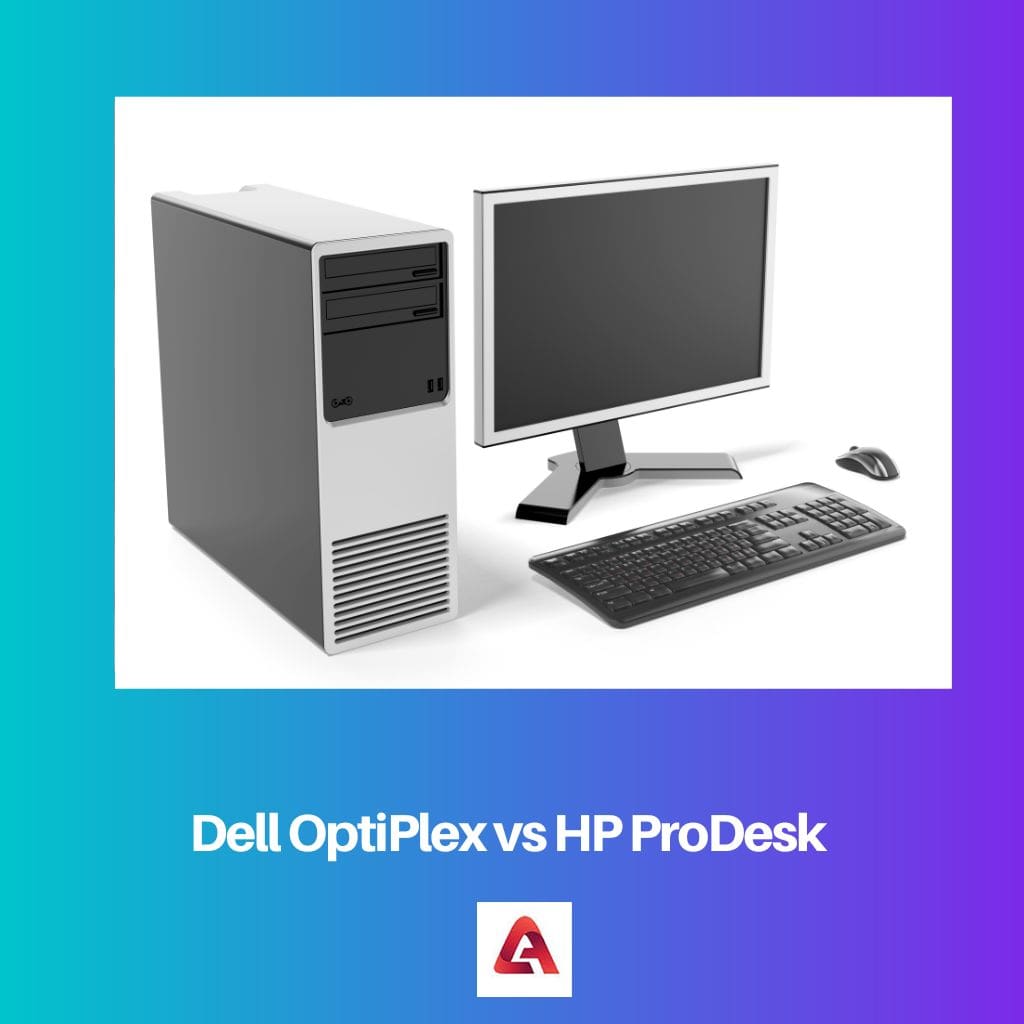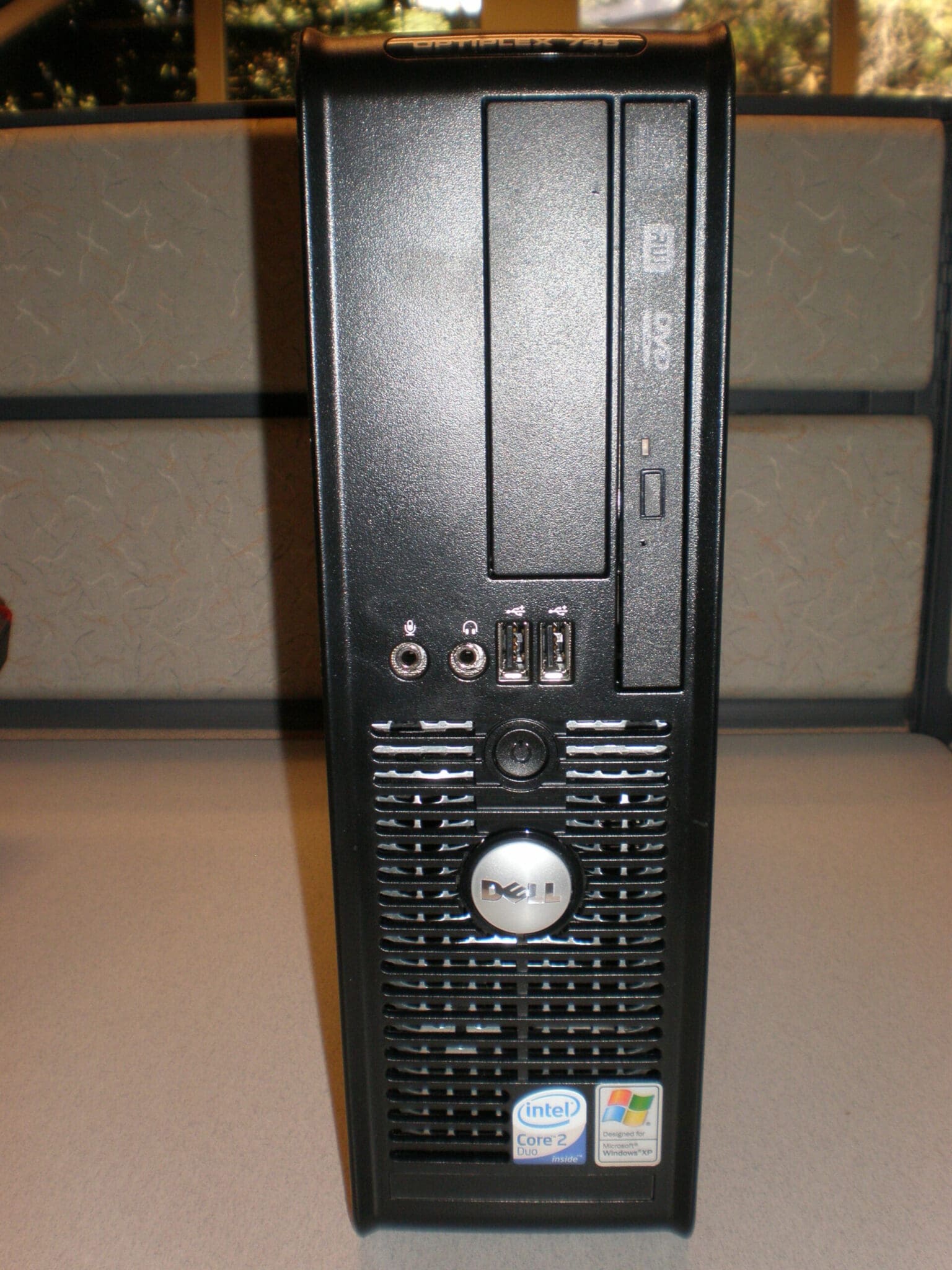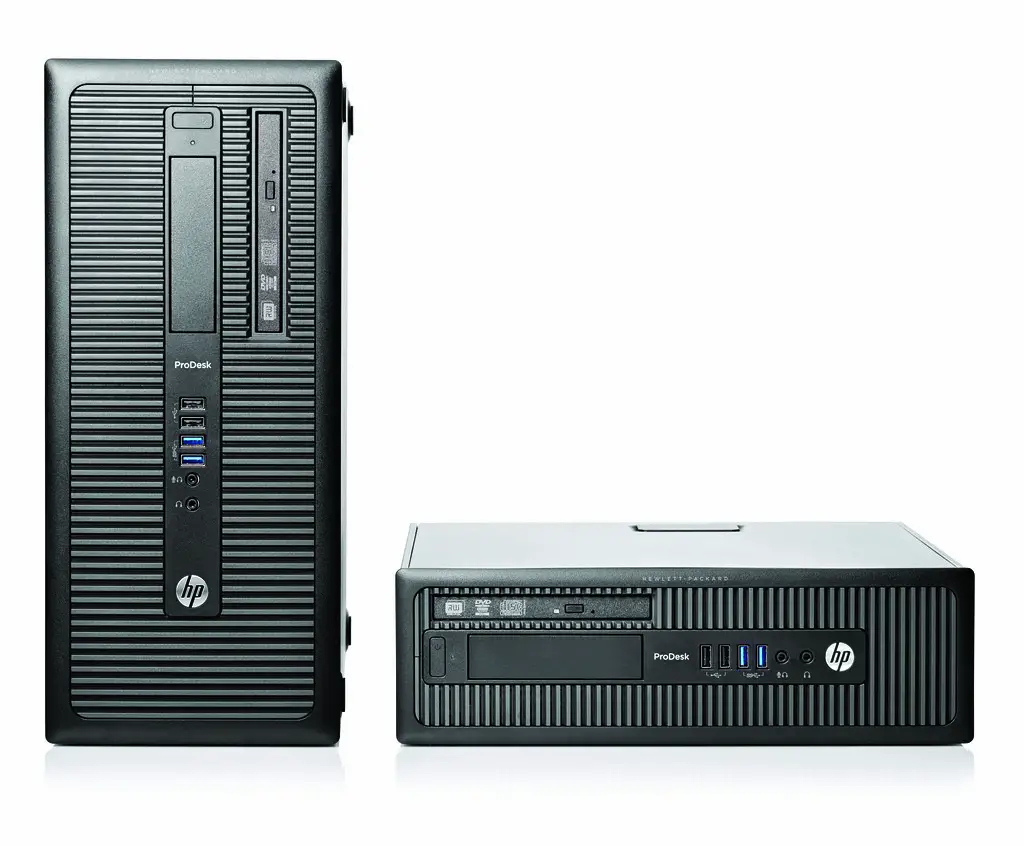A computer is a piece of electronic equipment that is used to process data or information. Computers come in a variety of shapes and sizes, and they help us with tasks like typing documents, sending emails, playing games, and surfing the Internet.
Nowadays, there are several companies and brands that manufacture various electrical items and equipment.
These companies ensure that many series or ranges of the same electronic device are produced with newer and improved features and advancements.
A broad range of firms manufactures desktop computers, the most well-known of which are Dell and HP.
Dell Technologies brings its OptiPlex series to the table, whereas HP brings their Pro series, especially its HP ProDesk model.
Both being one of their kind and fairly similar, the main differences between the two models, the PSU, port options, and various PCIe slot designs, are all very significant, especially when making a decision.
Key Takeaways
- Dell Optiplex and HP ProDesk are both lines of business desktop computers.
- Dell Optiplex machines offer more customization options, while HP ProDesk computers have a more streamlined selection.
- Both computer lines provide reliable performance, security features, and varying price points for businesses of all sizes.
Dell OptiPlex vs HP ProDesk
Dell Optiplex offers a wider range of customization options, allowing businesses to choose from various processors, memory, storage, and graphics options. HP ProDesk offers a more streamlined selection of configurations, making it easier for businesses to choose the right setup for their needs.

Dell Technologies debuted the Dell OptiPlex desktop computer in 1993. Dell Technologies was primarily aimed towards commercial organizations, healthcare, government, and education.
The marketing aim, on the other hand, was a commercial objective. In this series, Dell Technologies has developed a number of items.
The HP ProDesk debuted in 2013 as one of HP’s Pro series products. It is primarily aimed at small and medium-sized businesses. It is one of the most affordable options accessible. It is outfitted with a powerful high-end CPU.
Many customers, however, believe the storage is subpar.
Comparison Table
| Parameters of Comparison | Dell OptiPlex | HP ProDesk |
|---|---|---|
| Year of Release | 1993 | 2013 |
| Series Name | OptiPlex series | Pro series |
| Manufacturing Company | Dell Technologies | HP (Hewlett-Packard) |
| Power Supply | 260 W | 250 W |
| Weight | 17.49 lb or 7.93 kg | 15/77 lb or 7/.15 kg |
What is Dell OptiPlex?
Dell Technologies debuted the Dell OptiPlex desktop computer in 1993. Dell Technologies was primarily aimed at commercial organizations, healthcare, government, and education. The operating systems used in this series were Windows and Linux.
Dell Optimizer and Dell Command are two examples of enterprise apps that may be integrated.
Due to the usage of faulty capacitors, the OptiPlex models made in 2003 experienced a number of issues.
These capacitors were flawed in such a way that issues such as leakage or bulging would arise even after a few years of operation, and the ensuing error was product failure.
Dell Technologies offers a number of chassis options. The options include Tower, Small and Micro Form Factors, and All-in-One. The form factors are directly related to the expandability of various chassis options.
Because of this proportionality, using a small form factor reduces expandability. In 2019, Dell Technologies released the one-of-a-kind ultra-form factor.
The design of the one-of-a-kind ultra-form factor was acceptable and modular. It serves as an all-in-one solution while also freeing up desk space. Apart from that, it is capable of replacing any feature or aspect on its own.
Every model in the OptiPlex series was improved in some way.

What is HP ProDesk?
HP ProDesk is primarily aimed at small and medium-sized businesses. If you need to purchase numerous PCs, the HP ProDesk series is one of the more affordable options. The processor acts as a middleman for multitasking business software.
Some of the products in this series do not have access to basic HP-affiliated support services. A three-year labour and component warranty is given, but no asset recovery, general internet backups, or diagnostic services are supplied.
The lack of these services may affect the user’s experience with the product.
HP’s most recent business ProDesk PCs are equipped with up to 10th generation Intel Core i7 CPUs, DDR4 RAM, and Optane memory options. Their RAM slots are user-accessible and changeable, with capacities ranging from 64 to 128GB.
They are offered in two series: ProDesk 400 and 600 G6s, which contain AiO flagships in each. They have FHD anti-glare 19.5-inch, 23.8-inch, or 21.5-inch anti-glare/anti-glare touch panels.
Designed to withstand 120,000 hours of HP Total Test Process3 and MIL-STD 810 testing4. A high-efficiency power supply, ocean-bound polymers used in the speaker box10, and moulded-pulp packing all contribute to lessening environmental impact.

Main Differences Between Dell OptiPlex and HP ProDesk
- Dell OptiPlex was released in the year 1993, and HP ProDesk was released in 2013.
- Dell OptiPlex is part of the OptiPlex series presented by Dell, whereas HP ProDesk is part of the Pro series presented by HP.
- Dell OptiPlex was launched by Dell Technologies. HP ProDesk was launched by HP, also known as Hewlett-Packard.
- The power supply for Dell OptiPlex is 260 W, and the power supply for HP ProDesk is 250 W.
- A Dell OptiPlex weighs 17.49 pounds or 7.93 Kg, and an HP ProDesk weighs 15.77 pounds or 7.15 Kg.
- https://link.springer.com/chapter/10.1007/978-94-007-1899-9_48
- https://iopscience.iop.org/article/10.1088/1757-899X/865/1/012013/meta





I find this information about computer manufacturing companies very informative. It’s important to have these details before making a purchase decision.
The Dell OptiPlex and the HP ProDesk differences highlighted in the post are quite fascinating. The storage information was especially interesting.
I appreciate the detail provided in this post. Great information!
Those details about storage were indeed eye-opening.
The technological advancements described are quite intriguing. It’s amazing how far we’ve come.
I’m not too convinced about the product comparison presented here. More critical analysis would be appreciated.
The weight comparison section left me chuckling! Great informative read overall.
Yes, it was quite amusing!
Excellent article, really interesting information. Thanks for sharing!
Totally agree! This was a fascinating read.